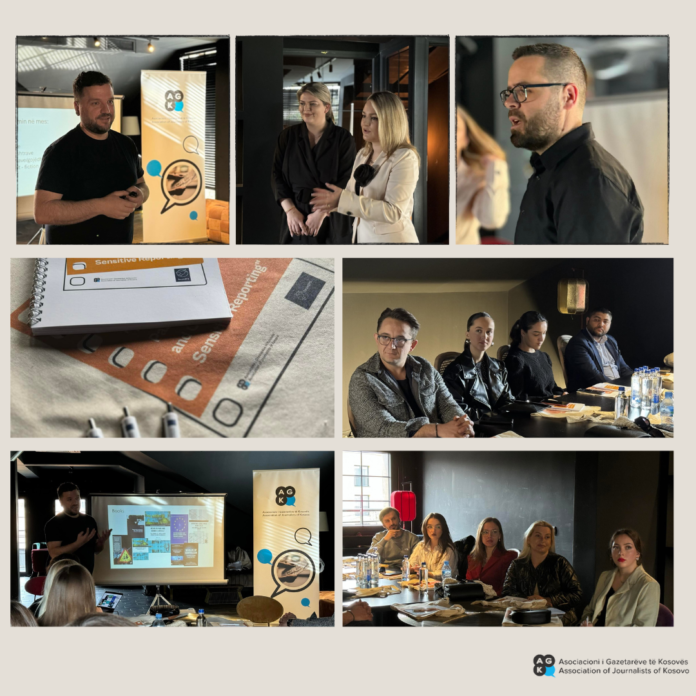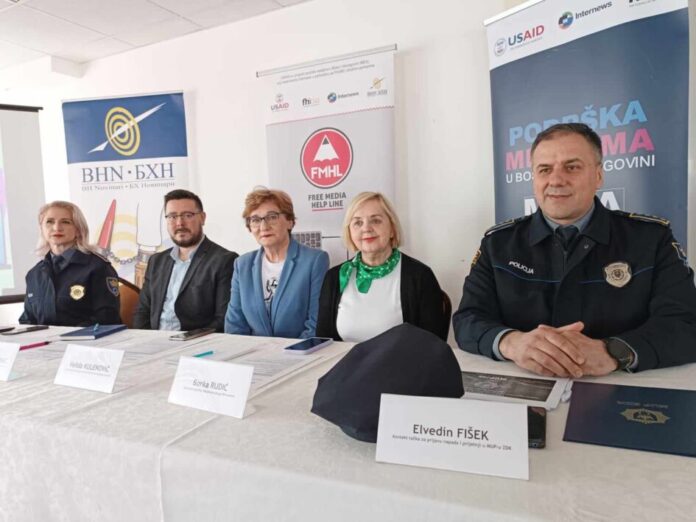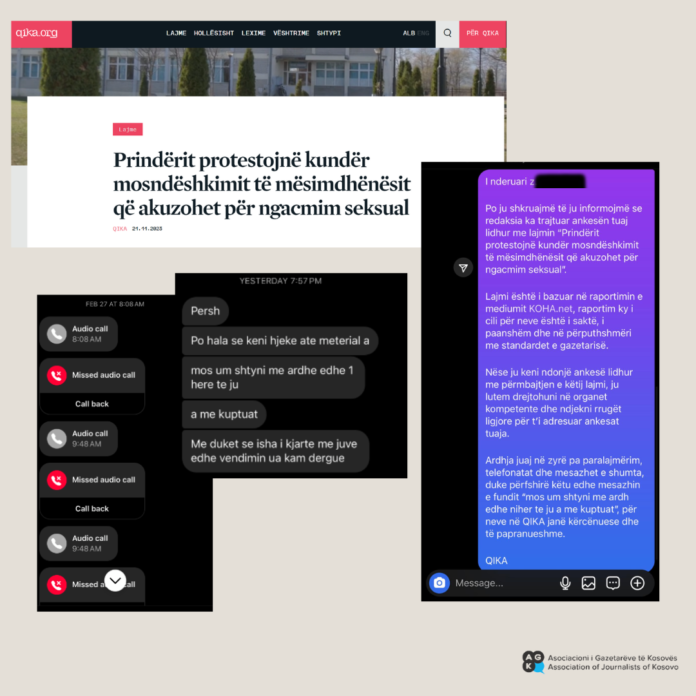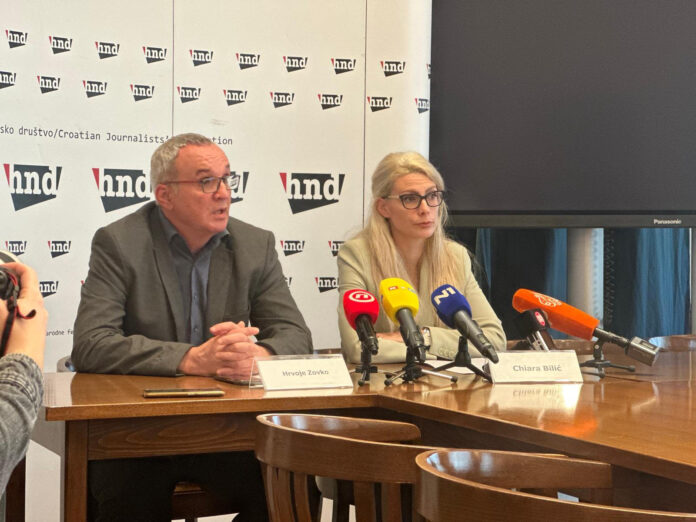We appeal once again to the members of the parliament to reject the Law of Dangerous Intentions, which is an attack on the profession, journalists, media, whistleblowers, and the public. If this shameful law is adopted, the Croatian Journalists’ Association (CJA) will continue to fight against LEX AP and against arrogant Croatian politicians, said ahead of the vote in the Croatian Parliament on amendments to the Criminal Code at a press conference of the Croatian Journalists’ Association, where CJA President Hrvoje Zovko and Vice President Chiara Bilić spoke.
Zovko also warned and condemned yesterday’s scandalous and shameful behavior of Prime Minister Plenković towards N1 television journalist Mira Moralić, emphasizing that such a mode of communication is unacceptable, especially considering the role that Moralić holds. “The only sensible thing Andrej Plenković can do is apologize to journalist, but unfortunately, given his ego and past behavior, I don’t think that will happen,” said Zovko.
The President of CJA emphasized that Plenković doesn’t hesitate from emotional blackmail and attempts to rush everything to conclusion so that the Law passes at the last moment, just before the dissolution of the Parliament. “CJA rejects LEX AP and calls on all colleagues to continue their work in the public interest to prevent plunder and lawlessness being enforced,” said Zovko, reminding that if this law were in force, journalists who published the correspondence of Turudić – Rimac (Pleslić), would already be under investigation and would be harassed.
Zovko added that it is frightening that none of the ruling officials denied that our colleagues would have their laptops, phones confiscated, and their private correspondence investigated under the new provisions of the infamous Article 307. “Therefore, cja will be available at all times to anyone who may be affected by this shameful law, and all possible assistance will be provided to them,” said Zovko, who added that Plenković, with his behavior and actions, increasingly resembles the two main autocrats in Europe, Vučić and Orbán.
cja Vice President Chiara Bilić added that it is obvious that the Prime Minister intends to control the Croatian media. “It has become his obsession, especially in the last four years, when he suggests and repeats to journalists what should be the topic and what should not. He thinks he can tell journalists what and how to write, and when journalists ask him specific questions, he attacks them, as was the case with colleague Moralić,” said Bilić, who also commented on the shameful behavior of Plenković’s office at yesterday’s conference, where microphones were set up like skittles. “This is unacceptable and an attack on journalistic tools. Where does he get the right for that?” Bilić asked, adding that Plenković has been targeting journalists for years, and LEX AP is a result of such behavior of the authorities towards journalists and the public.
Responding to a question about threats to journalists, Zovko said that CJA has close to a hundred documented threats or physical attacks on journalists in its records, and they face threats via emails or social media daily, which are the sources of such attacks against journalists, for which the political leadership is responsible for their attitude and behavior towards journalists and media.
“We warn Plenković that if anything bad happens to journalists, we will hold him directly responsible for such a situation, as he cannot be absolved of it,” Zovko said, stating that it is incredible that even after more than three decades, politicians do not understand or do not want to know what the job of journalists and media is in democratic societies.
Zovko finally reminded of CJA’s open letter to Croatian citizens about the dangers posed by amendments to the Penal Code. The letter was co-signed by 18 major media outlets, and some other outlets have since joined with their signatures. All other editorial boards are also called upon to lend their support and join the fight against LEX AP, which directly threatens media freedom.











